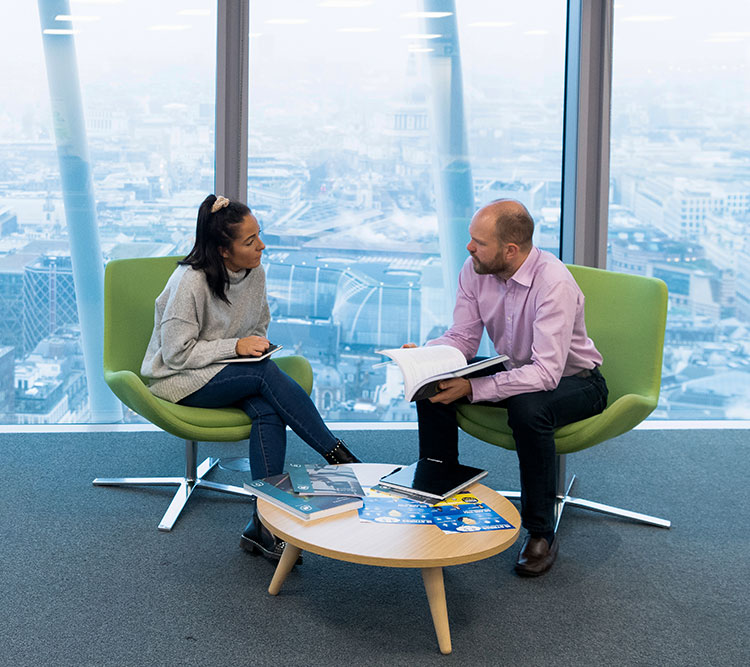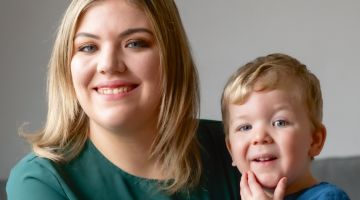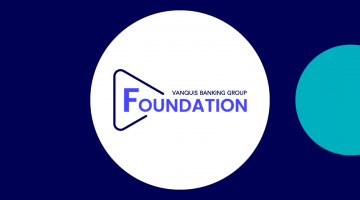In 2015, all United Nations (UN) Member States adopted a 2030 Agenda for Sustainable Development. This Agenda is a plan of action for people, the planet and prosperity. It seeks to strengthen universal peace and heal and secure our planet. This includes 17 Sustainable Development Goals (SDGs) and 169 targets which demonstrate the scale and ambition of this new universal Agenda.
The United Nations’ Sustainable Development Goals (SDGs) are a global call to action to end poverty, protect the planet and ensure all people can live in peace and prosperity. The 17 goals that make up the SDGs address the world’s most important economic, social, environmental and governance challenges. Successful delivery of the SDGs require all players from all sectors to champion this agenda. Private sector action will be key to the success of each goal – through responsible business operations, new business models, investment, innovation and technology, and collaboration. In aligning our sustainability strategy to the SDGs, we have chosen six of the Goals to focus on where we think we can have a genuine impact.
We established long-term objectives that are aligned with each of our six priority SDGs to show how we is responding to global issues such as climate change, inequality, injustice and poverty. In 2020, we established long-term objectives that are aligned with each of our six priority SDGs to show how we are responding to global issues such as climate change, inequality, injustice and poverty.
The Six UN Goals we have prioritised are:
- 1. No Poverty
- 4. Quality Education
- 5. Gender Equality
- 8. Decent Work and Economic Growth
- 10. Reduced Inequalities
- 13. Climate Action
This goal aims to end poverty in all its forms everywhere. The target is to eradicate poverty for all people everywhere by 2030. Poverty is currently measured as people living on less than 91p a day.
Vanquis Banking Group Lends Responsibly and Acts Sustainably
One our roles as a business is to address key barriers to financial inclusion. We do this primarily by ensuring that our customers have access to cost-effective and appropriate products, that meet their specific needs.
We also invest in activities and initiatives that address key factors which may affect someone’s likelihood of being accepted for credit, through the Vanquis Banking Group Foundation. We make sure our colleagues have the skills to deal with customers with additional needs. We also support independent financial research, money advice and financial education.
This enables our customers, and others who might face financial difficulty, to recognise the barriers to financial inclusion. They can then overcome these barriers and secure a more positive financial future for themselves.
We primarily contribute to this Goal by delivering on our Purpose and responsibly providing our 1.5 million customers with credit cards and loans through our Vanquis business and vehicle finance through Moneybarn.
We also support the financial inclusion agenda through our Foundation by providing grants to charities and specialist partners to address issues like customer vulnerability, product accessibility and financial difficulties.
We have also supported The Money Charity for over a decade. The charity’s vision is that everyone achieves financial wellbeing by managing their money. It works towards this by delivering products and services that provide education, information and advice to people in education, workplace and community settings.
Over the past 10 years, our support has contribued to The Money Charity educating 76,461 children and young people, empowering them with the skills, knowledge and attitudes to make the most of their money throughout their lives. Throughout 2023, The Money Charity delivered 32 workshop hours to over 2,700 children and young people in Yorkshire, Greater Manchester, Merseyside and the West Midlands. Over a third of these workshop hours were targeted at groups of ‘disadvantaged’ young people, due to an above average percentage of the young people who go to the school/college receiving free school meals, or because the group of young people have another specific vulnerability.
In addition, our support enabled The Money Charity to deliver 36 workshop hours to 228 adults in a range of groups including those who are at risk of or experiencing homelessness, care leavers, refugees, and people with disabilities.
We often post our work relating to these programs on our social media channels. Do take a look and meet some of the faces behind this work.
This goal ensures inclusive and equitable quality education and promotes lifelong learning opportunities for all. The target is: By 2030, to ensure that all girls and boys complete free, equitable and quality primary and secondary education leading to relevant and effective learning outcomes. It's all about improving access to quality early childhood development to increase the number of youth and young adults who have the relevant skills in literacy and numeracy.
We contribute to this SDG through the work we support with our education partners. Through our longstanding partnerships with National Numeracy, the National Literacy Trust and Leading Children we have supported a number of programmes which aim to boost the literacy and numeracy skills of children and young people. The Group has been a supporter of National Numeracy since 2018, supporting the National Numeracy Day campaign for six years.
In 2023, National Numeracy Day was held on 18 May and celebrated the importance of numbers in everyday life and inspired children and adults to improve their numeracy skills in their lives at home, work and school. Along with inspiring almost 830,000 actions to improve number confidence and skills in May alone, the campaign led to 16,854 downloads of National Numeracy resources, a 70% increase on 2021.
In addition, eight colleagues have volunteered as part of the charity’s volunteering programme and the Group is a member of the charity’s Leadership Council. We also remain committed to ensuring that children do not lose out on their education because of the current cost of living challenges that many families are dealing with. This is why we provide funding to School-Home Support. This enables School-Home Support’s practitioners to provide advice and support to families in Bradford and Kent, enabling them to access vital support with bills, gain employment and, crucially, get children in school and ready to learn.
In 2023, the charity supported 133 individuals via intensive casework support and worked with 269 individuals that benefited from early response support. We also provide funding to School-Home Support and another partner, the Dixons Academies Trust, to deliver our School Uniform Project. In 2023, this project provided funding to over 1,000 families in Bradford, Blackpool, Liverpool, London and Manchester, so that they could access essential items of school uniform for their children, ensuring that they did not lose out on their education because they could not afford to buy it.
This goal aims to achieve gender equality and empower all women and girls. The target is: End all forms of discrimination against all women and girls everywhere.
We are committed to supporting diversity and creating an open and inclusive culture where everyone feels valued.
Our Target
Financial services has traditionally been seen as an industry that has lacked diversity and inclusivity however we're aiming to address this through promoting more women into senior level positions and we also recognise that Vanquis Banking Group has a key role to play in closing the gender pay gap across the financial services sector. That's why our objective is to have 40% female representaion in the Group's senior Management population.
The Group’s senior management population currently has 34% female representation. The key actions we undertook throughout 2023 to support this SDG include: ensuring gender balanced shortlists when we recruit for senior leadership roles across VBG. We also work in partnership with the recruitment agencies and other organisations we use to ensure they are clear on our expectations regarding our inclusion and diversity commitments; establishment of a professional women’s network to sponsor, connect and engage women across Vanquis Banking Group into and throughout their leadership journey; development and implementation of a strategic initiative aimed at addressing gender balance within the Group’s Technology and Change functions; helping colleagues benefit from menopause support and guidance at work.
This has seen the Group deliver ‘Menopause in the Workplace’ sessions to a range of senior leaders and managers and continue to host events to challenge change behaviour/mindsets around, equality, diversity and inclusion; continuing to adopt hybrid working models and enabling colleagues to work with greater flexibly, ensuring they have the support they need; and continuing to support a company-wide a gender affinity group as part of our Vanquis Banking Group inclusion community which is sponsored by an executive. This group, along with other groups linked to Disability, Ethnicity, LGBTQ+ and Social Mobility support the delivery of a calendar of regular company-wide communications/events to raise awareness and promote inclusion and diversity and inclusion across the Group.
This goal promotes sustained, inclusive and sustainable economic growth, full and productive employment and decent work for all. The UN target is: Sustain economic growth in accordance with national circumstances and, in particular, at least 7% gross domestic product growth per annum in the least developed countries.
Our Target
By 2030, we will contribute to promoting sustained, inclusive and sustainable economic growth, full and productive employment and decent work for all by creating opportunities for all generations and protecting and promoting labour rights in both our business and supply chains.
We do this in a number of ways, one of which being our Foundation.
Social Mobility Business Partnership
We support this Goal by funding the delivery of activities and initiatives in the communities we serve via the Vanquis Banking Group Foundation. In 2023, this involved providing funding to Level Up in Gosport to deliver work placements for young people aged 18-25 who have additional support needs. The work will take place in Gosport and aims to reach 48 young people facing challenging lives.
We also provided funding to the Bangladeshi Youth Organisation in Bradford to support its ‘Aspire 2 Success’ programme which engages children and young people from the disadvantaged Manningham and City wards who are ‘at risk’ of falling behind and not realising their true potential, to deliver an engaging training and development programme to raise their aspirations. We continue to support and participate in the Social Mobility Business Partnership which delivers a programme that aims to remove barriers, develop skills and provide experiences to sixth form and college students from disadvantaged backgrounds so that they pursue careers in the legal and professional services sectors.
In 2023, the overall programme supported over 650 16 to 18-year-old students, with Vanquis Banking Group hosting 25 students from schools and colleges next to its Bradford head office.
This Goal aims to reduce inequality within and among countries. The target is: By 2030, progressively achieve and sustain income grown of the bottom 40% of the population at a rate higher than the national average.
Our Target
Whether it is because of their age / sex / gender identity / race / ethnicity / origin / disability / ability / where they live or what their economic status is, we will contribute to reducing inequality by building these capabilities to better identify, support and empower our stakeholders who may face inequality and exclusion.
How we do this
We also support this Goal, by providing funding to a range of projects through our community investment programme which seek to reduce inequalities. For example, in 2023, we provided funding to Youth Resilience UK to support the continuation of services across Medway, Swale and Thanet, working with disengaged young people, either as an intervention measure within their school if the individual is at risk of exclusion or at an alternate education provision post-exclusion. This includes a broad range of services, including counselling, peer-support training programmes, mental health support and raising awareness about the dangers and impact of crime and substance misuse.
In terms of seeking to maintain an inclusive and diverse workplace at Vanquis Banking Group, we continue to do this via our Group-wide Inclusion Community, which comprises five aligned Affinity Groups focused on Disability, LGBTQ+, Gender Balance, Ethnicity and Social Mobility. These groups currently have approximately 70 active and representative members, as well as an extensive network of Affinity Group allies, and help to coordinate work across the Group to celebrate, learn and increase awareness around an extensive range of inclusive and diversity-related events.
You can read more on Inclusion and Diversity here or find more information on what we do on our social media channels.
Goal 13 calls for urgent action to combat climate change and its impacts. It is intrinsically linked to all 16 of the other Goals of the 2030 Agenda for Sustainable Development. To address climate change, countries adopted the Paris Agreement to limit global temperature rise to well below 2 degrees Celsius.
Vanquis Banking Group target
To achieve net zero carbon dioxide emissions by 2040, support the UK’s transition to a net zero economy and take urgent action to tackle climate change and its impacts.
Our commitment to achieve net zero GHG emissions by 2040 (in respect of our scope 1, 2 and 3 GHG emissions) is ahead of the UK Government’s net zero by 2050 target, and has been further strengthened by the carbon reduction targets we set in 2023 and which have been approved by the Science Based Targets initiative (SBTi).
During 2023, we continued to reduce our impact on the environment by improving the energy and resource efficiency of our operations and understanding and reporting the actual and potential impacts of climate-related risks and opportunities on the Group (see pages 19 to 28 of the Group’s Annual Report and Financial Statements 2023 for more information). We have also taken a number of important steps that support our net zero target. This has included setting SBTi-approved carbon reduction targets in line with the latest climate science recommendations necessary to meet the goals of the Paris Agreement and limit global warming to 1.5°C, well below 2°C.





